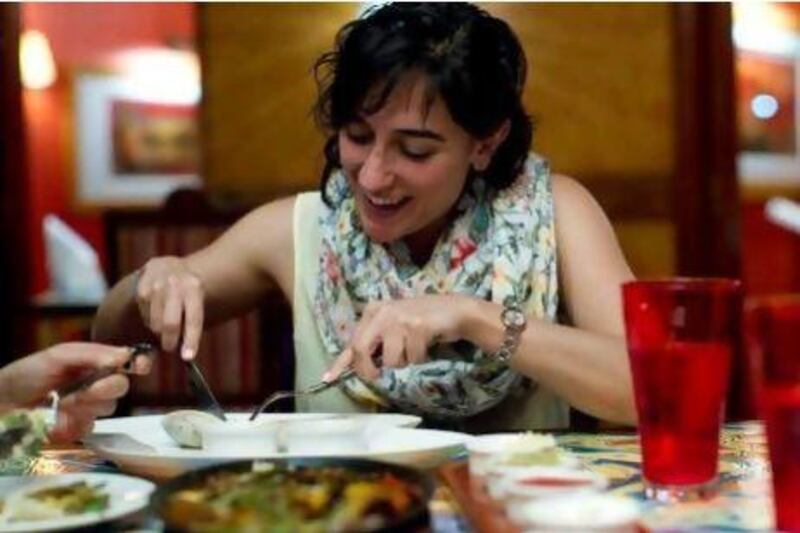Restaurants that ban diners from taking home leftovers are being over-protective and wasting food, especially during Ramadan, say customers.
Some hotels do not allow uneaten meals to be taken off the premises, while others require customers to sign a disclaimer to avoid any blame in case of food poisoning.
The ban results in a "big waste of perfectly good food that just gets thrown away", said Josephine Green, a British mother of two.
Avoiding waste should be highlighted during Ramadan, she said.
"It should be a priority for restaurants, especially fancy ones, to offer customers the option to take home their food after spending so much money," Ms Green said.
Kassim Shaaban, 34, from Lebanon, a marketing consultant in Dubai, said restaurants were being too protective.
"People who eat at fancy restaurants are adults, so restaurants should assume their customers know how to treat their food when they take it away," he said.
He believes it is an "unnecessary precaution from the hotels to cover their own backs" and "a shame that so much food is being wasted".
Guests at the Burj Al Arab's Al Mahara seafood restaurant are not allowed to take home leftovers in a doggy bag "for health and safety reasons".
"We do not really provide the takeaway option to our guests to maintain our food hygiene standards and the quality of our food hygiene process," said Nermine Kashef, of the Jumeirah Group.
Otto Widl, food and beverage manager of the Sheraton Abu Dhabi, said customers at La Mamma and El Sombrero restaurants must sign a waiver "in case the food is not stored properly".
The hotel banned takeaways temporarily in 2009 after two children died of food poisoning after eating a spoiled takeaway meal from a Chinese restaurant in Dubai.
"As we don't have any control over it once it leaves the hotel, we can only guarantee the freshness of the food while it is in the hotel," Mr Widl said.
A marketing manager for the Fairmont Bab Al Bahr in Abu Dhabi said its takeaway ban was required by municipality regulations, although neither Abu Dhabi nor Dubai municipalities have any such rules.
Ahad Nisar, environment, health and safety manager for the InterContinental Abu Dhabi, said takeaway disclaimers at the Belgian Beer Cafe and Chamas restaurant were part of international food-safety standards and were intended to ensure guests' safety.
The hotel follows guidelines set out by Abu Dhabi Food Control Authority advising consumers and food handlers to keep hot food at 63°C or higher and cold food at 5°C or lower.
"Disclaimers are commonly used to remind guests that takeaway food should be kept at the adequate temperatures and consumed within controlled timing," Mr Nisar said.
Mohamed Jalal Al Reyaysa, a director at the Food Control Authority, said it was "not an issue that concerns us", but a matter for the outlets and their customers.
But he did praise restaurants for taking such a precaution because it "looks a well thought out step to absolve themselves of any responsibility for the leftover food the customers take home".
Mr Al Reyaysa said keeping leftover food in improper conditions could "definitely lead to risks", particularly during the hot summer months.
Dubai Municipality advises that hot food may be kept below 60°C for a maximum of two hours, and high-risk cold food, such as salad, above 5°C for a maximum of four hours. "After this time, it must be thrown away," a spokesman said.






